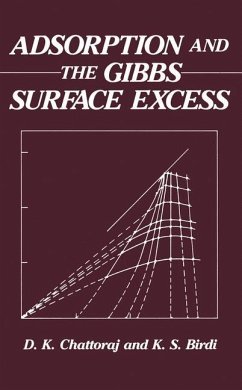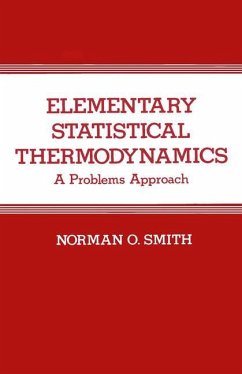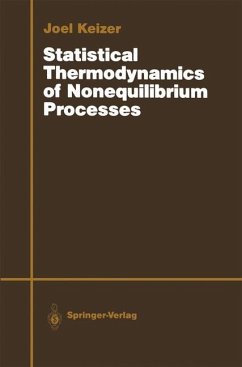
Solvation Thermodynamics

PAYBACK Punkte
20 °P sammeln!
This book deals with a subject that has been studied since the beginning of physical chemistry. Despite the thousands of articles and scores of books devoted to solvation thermodynamics, I feel that some fundamen tal and well-established concepts underlying the traditional approach to this subject are not satisfactory and need revision. The main reason for this need is that solvation thermodynamics has traditionally been treated in the context of classical (macroscopic) ther modynamics alone. However, solvation is inherently a molecular pro cess, dependent upon local rather than macroscopic pr...
This book deals with a subject that has been studied since the beginning of physical chemistry. Despite the thousands of articles and scores of books devoted to solvation thermodynamics, I feel that some fundamen tal and well-established concepts underlying the traditional approach to this subject are not satisfactory and need revision. The main reason for this need is that solvation thermodynamics has traditionally been treated in the context of classical (macroscopic) ther modynamics alone. However, solvation is inherently a molecular pro cess, dependent upon local rather than macroscopic properties of the system. Therefore, the starting point should be based on statistical mechanical methods. For many years it has been believed that certain thermodynamic quantities, such as the standard free energy (or enthalpy or entropy) of solution, may be used as measures of the corresponding functions of solvation of a given solute in a given solvent. I first challenged this notion in a paper published in 1978 based on analysis at the molecular level. During the past ten years, I have introduced several new quantities which, in my opinion, should replace the conventional measures of solvation thermodynamics. To avoid confusing the new quantities with those referred to conventionally in the literature as standard quantities of solvation, I called these "nonconventional," "generalized," and "local" standard quantities and attempted to point out the advantages of these new quantities over the conventional ones.














